Related Research Articles

The Independent Labour Party (ILP) was a British political party of the left, established in 1893 at a conference in Bradford, after local and national dissatisfaction with the Liberals' apparent reluctance to endorse working-class candidates. A sitting independent MP and prominent union organiser, Keir Hardie, became its first chairman.
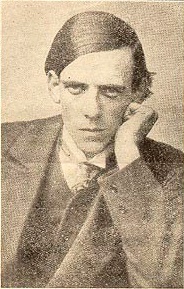
James Maxton was a Scottish left-wing politician, and leader of the Independent Labour Party. He was a pacifist who opposed both world wars. A prominent proponent of Home Rule for Scotland, he is remembered as one of the leading figures of the Red Clydeside era. He broke with Ramsay MacDonald and the second minority Labour government, and became one of its most bitter critics. As the leader of the Independent Labour Party (ILP), he disaffiliated the ILP from the mainstream party in 1932. Afterwards, he became an independent dissident outside front-line politics.
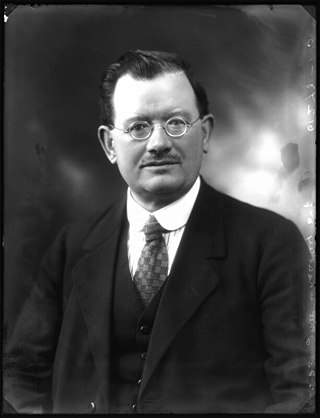
John Wheatley was a Scottish socialist politician. He was a prominent figure of the Red Clydeside era.
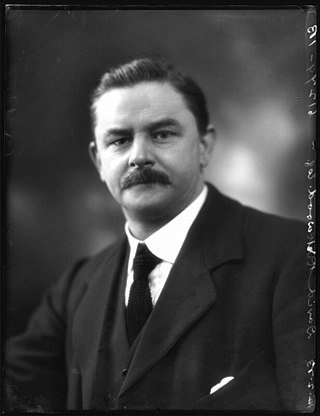
David Kirkwood, 1st Baron Kirkwood, PC, was a Scottish politician, trade unionist and socialist activist from the East End of Glasgow, who served as a Member of Parliament (MP) for nearly 30 years, and was as a leading figure of the Red Clydeside era.

George Buchanan was a Scottish patternmaker, trade union activist and Member of Parliament.
There have been various groups in Canada that have nominated candidates under the label Labour Party or Independent Labour Party, or other variations from the 1870s until the 1960s. These were usually local or provincial groups using the Labour Party or Independent Labour Party name, backed by local labour councils made up of many union locals in a particular city, or individual trade unions. There was an attempt to create a national Canadian Labour Party in the late 1910s and in the 1920s, but these were only partly successful.

Elizabeth Margaret Braddock was a British Labour Party politician who served as Member of Parliament (MP) for the Liverpool Exchange division from 1945 to 1970. She was a member of Liverpool County Borough Council from 1930 to 1961. Although she never held office in government, she won a national reputation for her forthright campaigns in connection with housing, public health and other social issues.

Frederick William Jowett was a British Labour politician, who served as First Commissioner of Works in the first Labour government, and therefore in the Cabinet of Ramsay MacDonald.

The 1948 Glasgow Camlachie by-election was held on Wednesday 28 January 1948, following the death of the sitting Member of Parliament, Campbell Stephen.
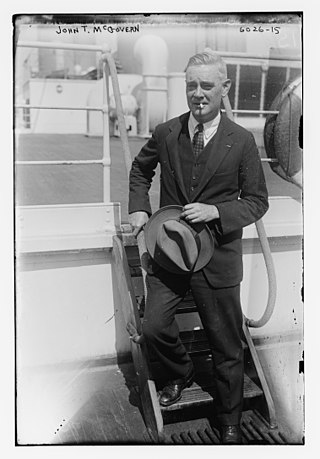
John McGovern was a Scottish socialist politician.
The 1946 Glasgow Bridgeton by-election was held on 29 August 1946, following the death of Independent Labour Party (ILP) Member of Parliament for Glasgow Bridgeton, James Maxton.
Frederick George Barton was a British socialist politician.
The 1941 Lancaster by-election was a parliamentary by-election for the British House of Commons constituency of Lancaster, Lancashire on 15 October 1941.
The Popular Front in the United Kingdom attempted an alliance between political parties and individuals of the left and centre-left in the late 1930s to come together to challenge the appeasement policies of the National Government led by Neville Chamberlain.
The Scottish Socialist Party (SSP) was an organisation of former Independent Labour Party members who wished to remain part of the Labour Party after their former party disaffiliated.
Rowland William Casasola, known as "Roland", was a British trade unionist and political activist.
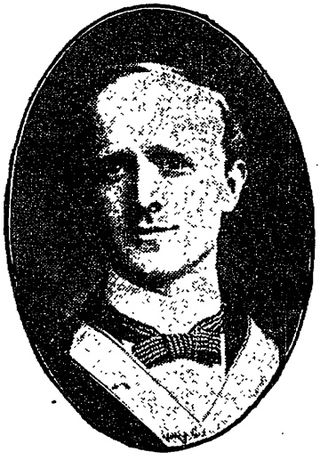
John McKean McLachlan was a British socialist politician.
John William Kneeshaw was a British political activist.
The National Administrative Council (NAC) was the executive council of the Independent Labour Party (ILP), a British socialist party which was active from 1893 until 1975.
Alexander Burns Mackay (1882–1973) was a Scottish politician and trade unionist.
References
- ↑ "I.L.P. Candidate", Manchester Guardian , 15 October 1935
- ↑ "I.L.P. to fight Renfrew", Manchester Guardian , 23 March 1940
- ↑ LSE Library Archives Catalogue: Independent Labour Party
- ↑ "'Atlantic Pact will lead to war' - I.L.P. Chairman", Manchester Guardian , 17 April 1949
- ↑ Jane M Jacobs, Stephen Cairns & Ignaz Strebel, "'A tall storey... but, a fact just the same': The Red Road highrise as a black box", Institute of Geography Online Paper Series: GEO-023
- ↑ The Word, vol.15/16, p.99
- ↑ "CND March in Glasgow", The Guardian , 16 October 1961